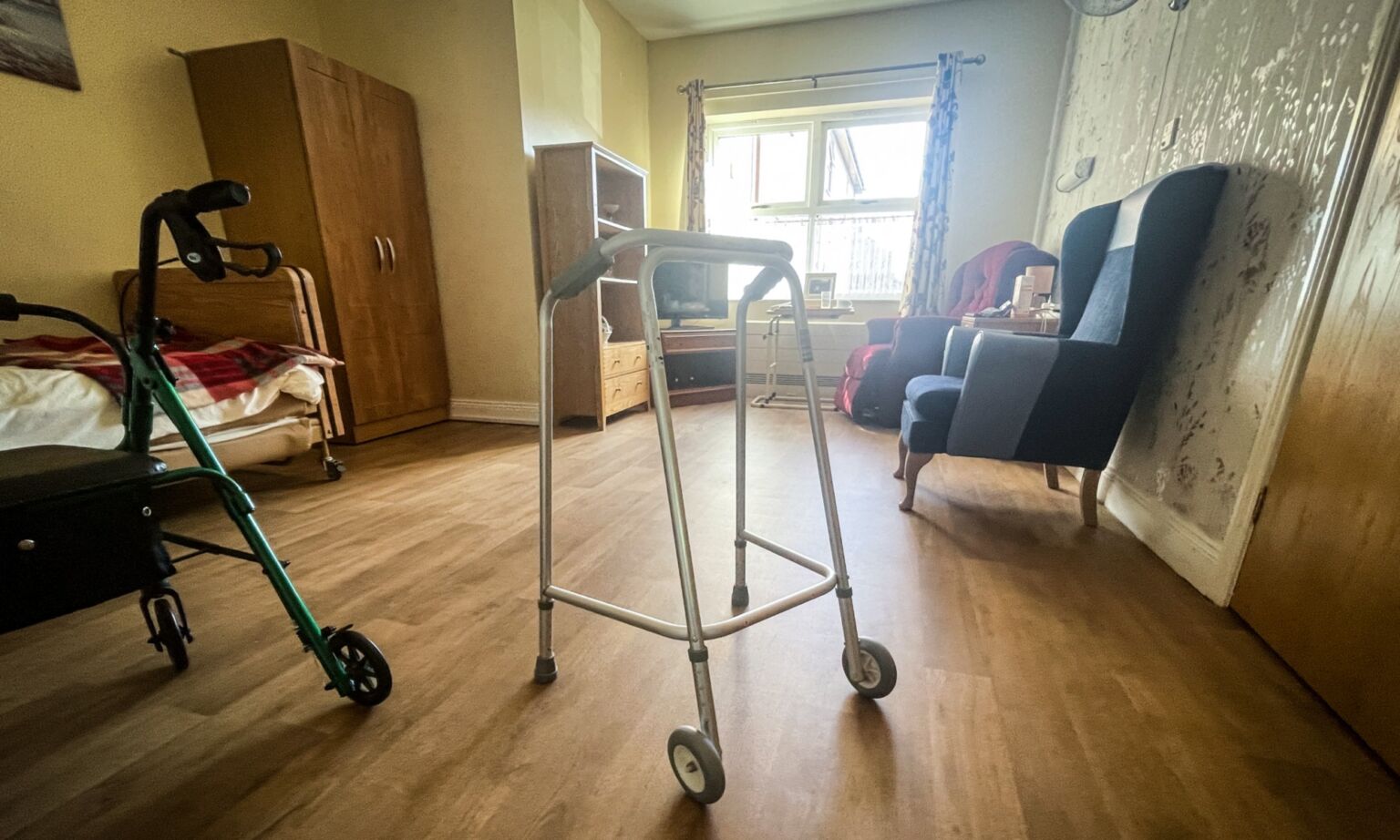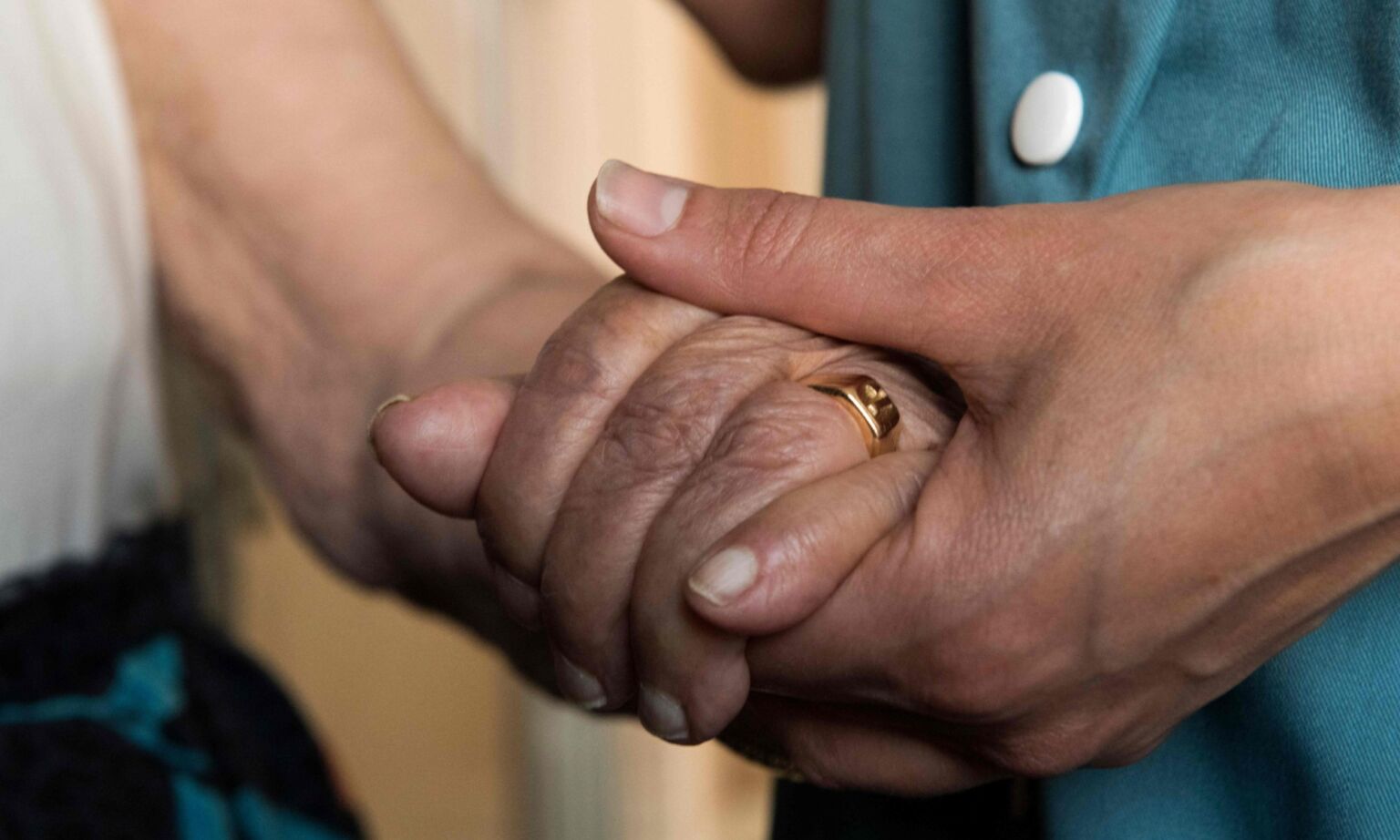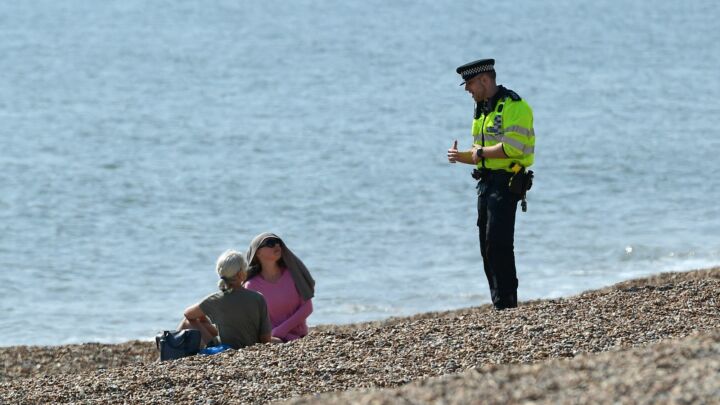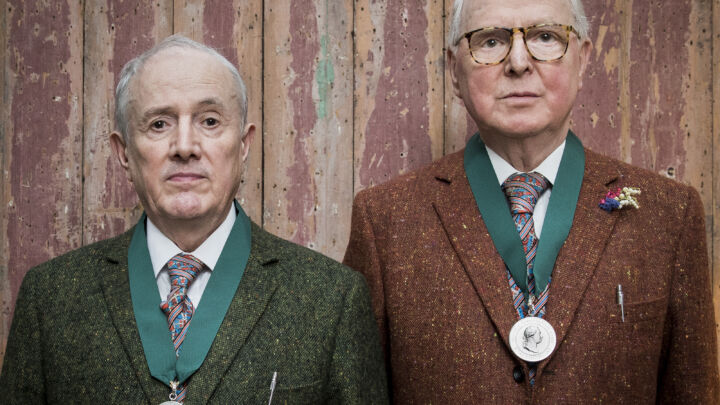
Long-read
Sweden’s elder rape scandal
The sexual abuse of elderly women by migrant carers was shamefully ignored.
Want to read spiked ad-free? Become a spiked supporter.
In autumn last year, Sweden was shaken by a scandal that shares some disturbing similarities with the grooming-gangs scandal in Britain. It is on a far smaller scale. But in Sweden, as in Britain, it seems that many vulnerable individuals have been raped and sexually abused, while the people whose job it should have been to protect them failed to do so. What’s more, those in positions of authority sometimes downplayed or hushed up allegations because of their low view of the victims and, potentially, the identity of some of the perpetrators.
The big difference between what happened in the UK and what happened in Sweden is that the victims were not young girls. They were elderly ladies dependent on outside carers to look after them. They claim that some of these carers brutally exploited their position of trust.
The scandal broke properly in early September last year, when 84-year-old Elsa (using the pseudonym, ‘Vera’) decided to speak out in an interview with the regional daily newspaper, Upsala Nya Tidning (UNT).
Elsa lives in Uppsala, a city just north of Stockholm. In 2023, a foreign-born carer sent to her home by Uppsala municipal council started to be unpleasantly intimate with her. He called her ‘sweetheart’ and turned her face so as to kiss her on her mouth. He started questioning her about her flat, asking her if she owned it and whether she had any relatives who might inherit it. He even asked if could move in and live with her.
‘He was so pushy’, recalled Elsa in the interview. Then things took an even darker turn:
‘One day when I was sitting here by my dining table, he took out a tube of lubricant, which he said was especially for the elderly. Then he pulled down his trousers and showed me his erect penis. At that moment, the doorbell went. Two missionaries who wanted to preach the word of God showed up. I have never been so thankful for such people as that time.’
Elsa contacted the manager responsible for organising her home care and reported what had happened. She said that she didn’t want to have any more visits from that carer. The manager agreed to her request.
Elsa felt reassured that matters had been taken care of, especially after the carer appeared to have been replaced. But she was mistaken. After several weeks, he returned. It turned out the manager hadn’t dealt with the incident at all. There is certainly no record in the council’s files of Elsa’s complaint.
Upon his return, the carer behaved himself initially. But then he started to be overly intimate once again. Elsa tried to call the manager many times, but she either did not pick up the phone or, when she heard that it was Elsa, put down the receiver.
Then in spring 2024, the carer attacked Elsa. ‘I feel so ashamed’, Elsa told the UNT:
‘I tried to push him away, but he was strong, and I am very weak. He raped me here in my own bed, in my own flat. I shower myself extra carefully. I feel so dirty. But it doesn’t go away.’
Initially, Elsa didn’t say anything about what had happened. But a few weeks after the attack she broke down in front of a social worker who had come to check up on her. He promptly contacted the head of the home-care service. The manager said he believed Elsa’s account and said the man would no longer be visiting her. But he also said that her attacker would still be working elsewhere with elderly people because dismissal was a decision that only the HR department could take.
The police were also involved. But due to a lack of evidence – it had been weeks since the rape – Sweden’s prosecutors decided that a criminal case against him couldn’t proceed.
When UNT interviewed Elsa last September, she used the pseudonym, ‘Vera’, because she was so frightened of what people would think of her. But her courage proved to be a wake-up call for Uppsala and, in many ways, for Sweden as a whole. Within days, more elderly ladies started to come forward to allege that they, too, had been abused by their carers.
In particular, there was Siv, also from Uppsala. She told reporters how she was regularly raped by three different carers ‘from the same country’. One of these men was the man who raped Elsa. They didn’t just visit her when they were supposed to work, but started to turn up in the evenings, too. This went on for months. Siv says she was in shock and was fearful of saying anything to anyone – that is, until Elsa gave her interview.
Soon, other media started to cover the story. And the government-backed Swedish Gender Equality Agency began compiling a report on the violent abuse of the elderly.
The abuse clearly went beyond just a few cases. UNT contacted Sweden’s Health and Social Care Inspectorate (IVO) and demanded to see all reports of elder sexual abuse in the Swedish care system over the past five years. It turned out that councils across Sweden had received a staggering 45 reports. Some of these reports involved more than one perpetrator abusing a single victim. Others involved several victims reporting a single perpetrator.

I too have contacted the IVO, and received the same 45 case reports. In all the cases that went to court, the court proceedings and police reports make for harrowing reading. It’s clear that there are even more cases of elder abuse than those recorded by the IVO. I have discovered a further nine cases just through looking at reports in local newspapers. In many of these cases the journalist has interviewed care providers and has been told that the case was reported to the IVO. But since these cases can’t be found in the IVO’s files, there appears to be a discrepancy between what managers say they do and what they actually do.
Some of the cases that have not been reported to the IVO are the most horrifying. In 2023, in Strömstad, a 50-year-old Swedish-born man suffocated a 94-year-old lady in his care by wrapping plastic film over her face. He filmed her agony on his mobile phone, before showing the video to some friends while telling them how proud he was to have filmed it. He was given a life sentence for this horrific act, but this case was still not reported to the IVO.
In 2024, television channel TV4 interviewed an 80-year-old lady called Ylva. Sitting in a wheelchair, Ylva said that she was raped twice in 2023 by her carer. When she spoke to her home-care management, they told her to keep quiet and not say a word to anyone. She did as she was told. It was only when she saw the UNT article about Elsa a year later that she plucked up the courage to speak about it. ‘Elsa is a hero’, she said. The manager of Ylva’s home-care service continues to avoid all questions from journalists.
The cases of elder abuse just keep coming. On 13 January this year, Baasim Yusuf, a 28-year-old of Somali origin, was sentenced by an Uppsala court to eight years in prison for two cases of rape and three cases of sexual assault, all of which he filmed. Some of his victims, suffering from poor memory, did not recall what had happened to them until the police showed them the video recordings.
The public anger after Elsa spoke out, unleashing a torrent of horrific allegations, has been palpable. It has been matched only by the determination of the authorities to suppress the scandal.
Towards the end of last year, two women organised a mass protest on a Saturday outside Uppsala city hall. They wanted to show their solidarity with Elsa and the other victims of elder abuse. But some local politicians, concerned about the bad publicity, tried to stop the protest. They wanted to move it to another place and time – to somewhere less public and sometime in the middle of the week – in order to reduce its impact. To their credit, the organisers refused.
In response, the politicians contacted the organisers to suggest that instead of a demonstration in support of Elsa, they should stage a more general one against ‘gender power structures’ or ‘men’s violence against women’. Again, the organisers refused to back down. They didn’t want to stage a protest against ‘some kind of mumbo-jumbo’ about gender power structures. They wanted to stage a protest explicitly in support of Elsa and the other nameless elderly victims of rape and abuse, as one of the organisers put it. Eventually, that is precisely what they did.
Given the scale of the scandal that has slowly emerged over the past six or seven months, the main question is why reports of elderly abuse were ignored for so long. No doubt one reason is the low view of the elderly held by too many in positions of authority in Sweden and indeed the West more broadly. For a variety of reasons, their lives are not deemed as valuable as those of younger people.
But there’s another equally troubling reason. And that is the fact that some of the carers accused of abuse and rape come from migrant backgrounds. It seems more than plausible that too many have been wary of bringing the cases to light out of fears of stoking a racist or anti-immigrant backlash among the public.
It shouldn’t need to be said, but the rape and abuse of the elderly is not a crime solely or even largely committed by migrants. Indeed, there are plenty of cases in which the perpetrators are Swedish men, as noted above. But because Sweden welcomed a large number of migrants from Afghanistan, Lebanon, Syria, Somalia and Eritrea over recent years and many came to work in the care sector, it means that a disproportionate number of perpetrators are indeed migrants.
This has then been compounded by a thoroughly inadequate vetting process. Indeed, until the scandal broke, many if not all Swedish municipalities did not carry out any criminal-record checks on prospective care workers. The man accused of raping Elsa reportedly had several other allegations of sexual assault against his name by the time he took up care work.
The risks of allowing into Sweden so many people about whom so little is known are becoming increasingly apparent. In 2015, at the height of Europe’s migrant crisis, there was a large inflow of young Afghan men into Sweden. Some of them were obviously not as young as they claimed to be, but Sweden’s liberal immigration laws allowed them to be registered as under 18. I spoke with a manager in a Swedish council at the time who told me they had opened three homes for these ‘boys’. Two were for the obviously much older boys and one was for those judged to be actually under 18. Officially, however, all three homes were for children.
Among these older ‘children’ was Mones Afshar, then registered as an 18-year-old, despite having an older appearance. The Swedish government tried to deport him to Afghanistan in 2015, but failed. In 2018, after the government decided to let these Afghan migrants stay if they went to college, Afshar took up studying, before eventually starting work as a carer. In February 2024, he used his electronic key to access the flat of an elderly lady who wasn’t in his care. He raped her and left.
After the police found his DNA on soiled towels in the flat, he was found guilty of rape and sentenced to five and a half years in prison and given a deportation order to Afghanistan. He has since protested and says that his life will be in danger if he returns, despite his Facebook profile indicating visits to Kabul in 2020 and 2021.
When journalists tried to interview the manager responsible for local home care, he said that he couldn’t ‘comment on specific cases’. That is a familiar refrain on the part of far too many involved in this scandal. In Elsa’s case, home-care managers and councillors also tried to hide behind platitudes and claims that they couldn’t comment on specific cases.
The official determination to hush-up the scandal has been striking. When Elsa asked to read the council’s report on her case, it refused to let her see it. The council, led by a coalition of Labour, former Communists and the Greens, also denied access to other politicians asking to see the files. When opposition politicians demanded an external investigation, the investigators were refused access to documents under the pretence that since they describe sexual assaults they are classified.
Nearly eight months on, there is still far too much about this scandal that remains out of sight. But there are signs that those in positions of authority are finally being held to account. After coming under increasing public pressure, Tobias Smedberg, chairman of the Uppsala’s elderly committee and the highest-ranking politician at the centre of the scandal, finally resigned this week.
Elsa herself is recovering, aided by the outpouring of public support and even a fundraiser. She wrote a thank-you letter in the local newspaper to say that she had brought a new handbag, been to the hairdresser and booked a spa vacation in Finland, together with her granddaughter.
The reckoning with Sweden’s failure to protect the elderly from harm, however, is still to come.
Dan Korn is the former editor-in-chief of the Swedish conservative daily, Bulletin. He has written 20 books and contributes regularly to many Swedish journals. He lives in Salford, UK.
Who funds spiked? You do
We are funded by you. And in this era of cancel culture and advertiser boycotts, we rely on your donations more than ever. Seventy per cent of our revenue comes from our readers’ donations – the vast majority giving just £5 per month. If you make a regular donation – of £5 a month or £50 a year – you can become a and enjoy:
–Ad-free reading
–Exclusive events
–Access to our comments section
It’s the best way to keep spiked going – and growing. Thank you!





Comments
Want to join the conversation?
Only spiked supporters and patrons, who donate regularly to us, can comment on our articles.